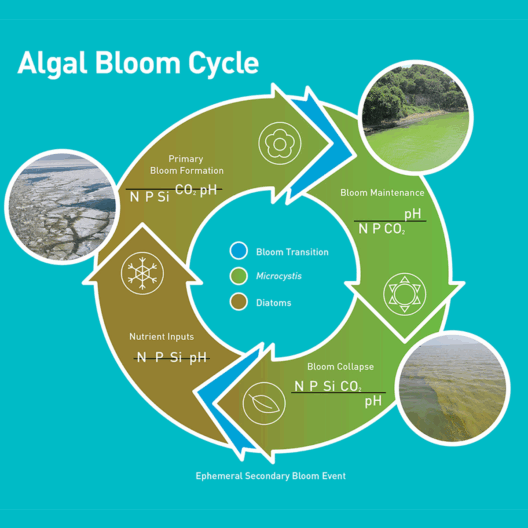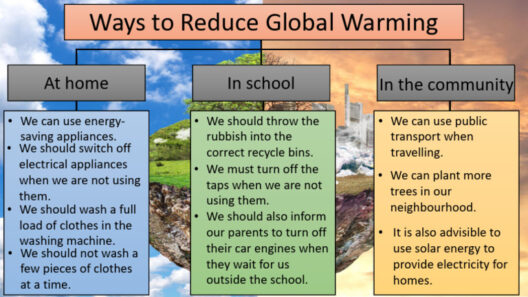Indonesia, an archipelago composed of over 17,000 islands, is not only rich in biodiversity but also a country that faces significant environmental challenges. Climate change poses a profound threat to its unique ecosystems and vulnerable populations. Embracing sustainable solutions has become crucial for Indonesia, a nation that strives to safeguard its natural resources while enhancing resilience against climate impacts. This discourse will delve into Indonesia’s climate action efforts, highlighting various sustainable strategies that promise a cooler future for both the nation and the planet.
The commitment of Indonesia to combat climate change is manifested in its Nationally Determined Contributions (NDCs), which outline its plans to reduce greenhouse gas emissions. Targeting a reduction of 29% by 2030, with an ambitious goal of up to 41% contingent on international assistance, the government recognizes the necessity of integrating climate action into its developmental agenda. These contributions span various sectors, including energy, forestry, and agriculture, where innovative practices can lead to significant benefits.
One of the most prominent sectors influencing Indonesia’s climate landscape is energy. The country has historically relied on fossil fuels, particularly coal and natural gas, to satisfy its growing energy demands. However, the transition towards renewable sources such as solar, wind, and geothermal energy is imperative. Indonesia boasts rich geothermal resources, being home to approximately 40% of the world’s geothermal reserves. Thus, harnessing geothermal energy not only provides a cleaner energy alternative but also fortifies energy security.
The implementation of solar energy systems has also gained traction. Solar panels, once a luxury, are becoming increasingly accessible, and programs promoting decentralized solar energy solutions are gaining attention. These initiatives allow rural and remote areas to tap into renewable energy sources, reducing reliance on fossil fuels and empowering communities.
Forestry management and land-use practices are other critical areas where Indonesia is actively pursuing sustainability. As one of the largest tropical rainforest nations, Indonesia plays a pivotal role in global carbon storage. However, deforestation has decimated vast tracts of these vital ecosystems, primarily driven by palm oil cultivation, illegal logging, and land conversion for agriculture. In response, the government has introduced moratoria on new palm oil plantations and is focusing on reforestation efforts. The landscape of Indonesia is changing, with initiatives aimed at restoring degraded land through sustainable forestry practices, ensuring both biodiversity conservation and community livelihood enhancement.
In parallel, the agricultural sector is experiencing a transformative shift towards sustainable practices. Traditional agricultural methods often lead to environmental degradation; thus, implementing agroecological practices is essential. By promoting organic farming, crop diversification, and permaculture, Indonesia is not only bolstering food security but also enhancing soil health and reducing the carbon footprint associated with conventional agriculture. These practices allow farmers to become stewards of the land, ensuring that they maintain productive soils for generations to come.
Public awareness and education play an instrumental role in fostering a culture of sustainability. Grassroots movements and non-governmental organizations (NGOs) have emerged throughout Indonesia, championing the cause of environmental protection and actively engaging communities. Campaigns that educate citizens about the impacts of climate change foster a sense of responsibility and encourage actionable steps, such as participating in tree planting initiatives or adopting waste reduction strategies.
As Indonesia navigates its climate action landscape, collaboration is essential. Engaging local governments, businesses, and international partners enables a multifaceted approach to sustainability. Partnerships with NGOs facilitate the dissemination of best practices and innovative solutions tailored to local contexts. These partnerships exemplify a commitment to collective action, emphasizing the interconnectedness of environmental, social, and economic well-being.
Technological innovation serves as a cornerstone of Indonesia’s climate strategies. The advent of smart technologies, such as information and communication technology (ICT), enhances monitoring capabilities to support sustainable resource management. For instance, remote sensing and satellite imagery provide invaluable data to combat illegal logging and manage agricultural practices. Embracing these technologies fosters a proactive approach to environmental stewardship, enabling better decision-making and planning.
A crucial component of Indonesia’s climate response is its focus on addressing social inequities. Vulnerable communities often suffer disproportionately from climate impacts, facing challenges such as food scarcity, displacement, and health risks. Thus, integrating equity into climate action ensures that those who contribute least to climate change are not left behind in strategies aimed at building resilience. Empowering marginalized communities through education, resources, and financial support allows for their voices to be heard in the decision-making process.
In summary, Indonesia stands at a pivotal juncture in its climate action journey. The embrace of sustainable solutions across energy, forestry, agriculture, and community engagement foresees a pathway toward a cooler future. However, it necessitates unwavering commitment from all sectors of society, coupled with innovative strategies and collaboration on both national and international levels. Through these concerted efforts, Indonesia can not only combat climate change but also serve as a model for others grappling with similar challenges, fostering a legacy of sustainability for generations to come.






